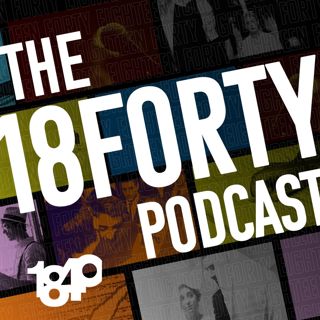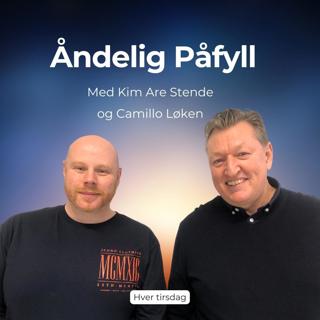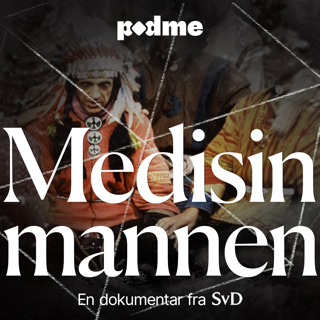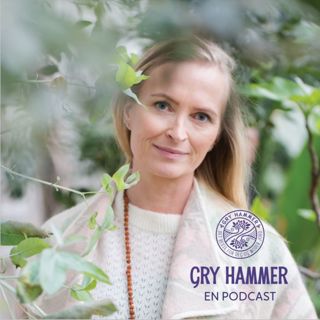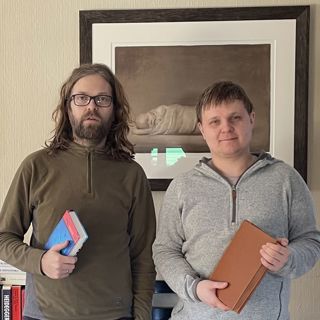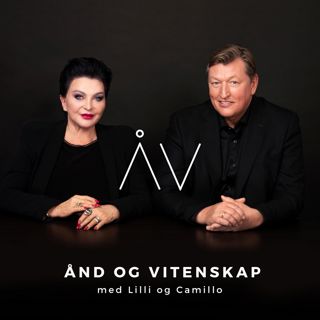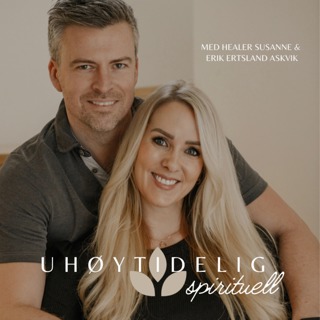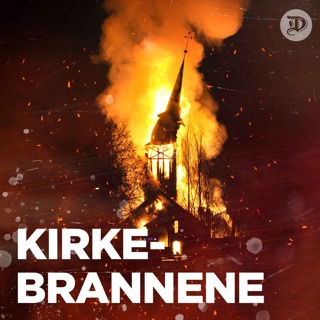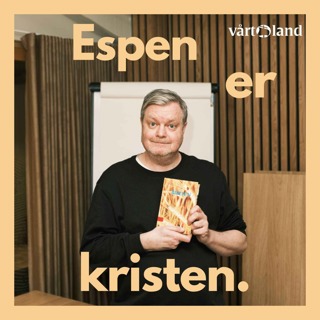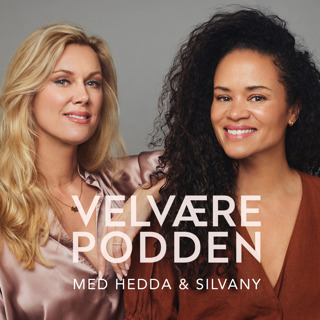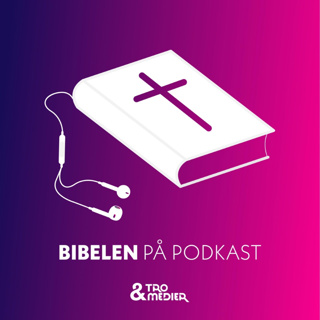![The Dardik Family: A Child Moves Away From Zionism [Divergence 3/6]](https://cdn.podme.com/podcast-images/661D8D3E8E1F4F50EFBDC3A2C19FFE41_small.jpg)
The Dardik Family: A Child Moves Away From Zionism [Divergence 3/6]
Receive our FREE newsletters at 18forty.org/join.Our Intergenerational Divergence series is sponsored by our friends Sarala and Danny Turkel.This episode is sponsored by an anonymous friend who supports our mission.In this episode of the 18Forty Podcast, we talk to Judah, Naomi, and Aharon Akiva Dardik—an olim family whose son went to military jail for refusing to follow to IDF orders and has since become a ceasefire activist at Columbia University—about sticking together as a family despite their fundamental differences. On Aharon’s 14th birthday, the Dardiks moved from America to the Neve Daniel in the West Bank/Judea and Samaria. Since then, their relationships to Israel have diverged but they have refused to be divided. In this episode we discuss:Why did Aharon initially choose to stay anonymous to protect his parents from public pushback?How can we identify positive qualities in people we viscerally disagree with? Do differences over Israel and Zionism need to tear families apart? Tune in to hear a conversation about how the Jewish People can learn to think less institutionally and more familially. Interview begins at 19:08.Rabbi Judah Dardik is an Assistant Dean and full-time Ramm at Yeshivat Orayta in the Old City of Jerusalem, where he teaches and oversees student welfare. He is also the Dean of the Orayta Center for Jewish Leadership and Engagement. Before making Aliyah, he completed 13 years as the spiritual and community leader of Beth Jacob Congregation, in Oakland, California.Naomi Dardik, with her husband, Judah, served the Beth Jacob community in Oakland for thirteen years. Now, she leads the team of Relationship Experts at "OurRitual," a young company based in Tel Aviv that is building new ways to help couples access relationship support. She earned her BA in psychology from Barnard College and her MSW from UC Berkeley.Aharon Akiva Dardik is a philosophy and political science double major at Columbia University. His activism in favor of a ceasefire in Gaza was noted in The New York Times. He formerly lived in Neve Daniel with his family. References:“Forgive Me, My King I Did Not Know You Were Also a Father” by David BashevkinBeit Yishai by Rabbi Shlomo Fisher“It Can Be Lonely to Have a Middle-of-the Road Opinion on the Middle East” Nonviolent Communication by Marshall B. RosenbergBeing Jewish After the Destruction of Gaza by Peter BeinartThe Power of Showing Up by Daniel J. Siegel and Tina Payne BrysonMistakes Were Made (but Not by Me) by Carol Tavris and Elliot Aronson“Family Ties” by David Bashevkin“Spending the Seder Alone” by David BashevkinBaderech by Rabbi Judah Mischel“Pesach Letter to My Child” by Rabbi Ahron LopianskyFor more 18Forty:NEWSLETTER: 18forty.org/joinCALL: (212) 582-1840EMAIL: info@18forty.orgWEBSITE: 18forty.orgIG: @18fortyX: @18_fortyBecome a supporter of this podcast: https://www.spreaker.com/podcast/18forty-podcast--4344730/support.
8 Apr 1h 47min
![The Samter Family: American Parents With Israeli Sons Fighting in Gaza [Divergence 2/6]](https://cdn.podme.com/podcast-images/B9711BB6B29F0CD1BDA3A31DA1C15AF2_small.jpg)
The Samter Family: American Parents With Israeli Sons Fighting in Gaza [Divergence 2/6]
Our Intergenerational Divergence series is sponsored by our friends Sarala and Danny Turkel.This episode is sponsored by an anonymous friend who supports our mission.In this episode of the 18Forty Podcast, we talk to Yehuda, Bayla, Elisha, and Avi Samter—members of a family that made aliyah from the comfortable Five Towns life a decade ago—about the divergence between Jewish life in America and in Israel. Whether one serves in the IDF has become a major realm of bifurcation within the Jewish People, and it’s a gap that we often fail to bridge even within our own social circles. In this episode we discuss:How does making aliyah and entering the army change prior friendships? Why should every Jew imagine the possibility of living an elevated life defending the Jewish People in the Land of Israel? What differentiates Five Towns Judaism from spirituality in the Land of Israel? Tune in to hear a conversation about unifying “both sides” of the Jewish People. Interview begins at 8:02. The Samter family made Aliyah from America and now have two sons serving in the Israel Defense Forces, fighting in the wars over the last 16 months in Gaza and Lebanon.References:Survivor IsraelFor more 18Forty:NEWSLETTER: 18forty.org/joinCALL: (212) 582-1840EMAIL: info@18forty.orgWEBSITE: 18forty.orgIG: @18fortyX: @18_fortyBecome a supporter of this podcast: https://www.spreaker.com/podcast/18forty-podcast--4344730/support.
1 Apr 1h 23min
![Sylvia and Simon Jacobson: How Different Generations Talk About Jewish Life [Divergence 1/6]](https://cdn.podme.com/podcast-images/70CFA9C24B8DA08CC46EA664A0511419_small.jpg)
Sylvia and Simon Jacobson: How Different Generations Talk About Jewish Life [Divergence 1/6]
Our Intergenerational Divergence series is sponsored by our friends Sarala and Danny Turkel.This episode is sponsored by an anonymous friend who supports our mission.In this episode of the 18Forty Podcast, we talk to Rabbi Simon Jacobson—a leading rabbi in the internet age who previously worked closely with the Lubavitcher Rebbe—and his mother, Silvia, who was born into a Chabad family in Europe nearly 90 years ago.Together, they have witnessed and experienced the development of the Chabad movement and the Jewish People over several historic eras. In this episode we discuss:How has Chabad managed to maintain continuity over wildly different generations and historical contexts? What can the mystical notions of tzimtzum, concealment, and revelation teach us about parenting? How has the way we talk about “trauma” evolved over generations?Tune in to hear a conversation about how we can transmit tradition to our children with confidence and rootedness in order to find a dwelling place for God in every generation. Interview begins at 11:15.Rabbi Simon Jacobson heads The Meaningful Life Center, called a “Spiritual Starbucks” by The New York Times, which bridges the secular and the spiritual through a wide variety of live and online programming. He is the author of the best-selling book Toward a Meaningful Life, a William Morrow publication that has sold over 400,000 copies to date. Rabbi Jacobson is a speaker, educator, and mentor.Sylvia, Simon's mother, is the matriarch of the Jacobson family. References:Kabbalah and the Rupture of Modernity: An Existential History of Chabad Hasidism by Eli RubinToward a Meaningful Life by Simon Jacobson“Tzomo Lecho Nafshi”The Count of Monte Cristo by Alexandre DumasVanity Fair by by William Makepeace ThackerayThe Algemeiner“Rabbi Simon Jacobson Appears on Larry King Live | June 1994”The Way of All Flesh by Samuel ButlerFor more 18Forty:NEWSLETTER: 18forty.org/joinCALL: (212) 582-1840EMAIL: info@18forty.orgWEBSITE: 18forty.orgIG: @18fortyX: @18_fortyBecome a supporter of this podcast: https://www.spreaker.com/podcast/18forty-podcast--4344730/support.
25 Mar 1h 49min
![Eitan Hersh: Can the Jewish Left Talk With the Jewish Right? [Outreach: Bonus]](https://cdn.podme.com/podcast-images/BE6BA3684E9C170E7873A6D08D563A65_small.jpg)
Eitan Hersh: Can the Jewish Left Talk With the Jewish Right? [Outreach: Bonus]
In this episode of the 18Forty Podcast, we talk to Eitan Hersh, a professor of political science at Tufts University, about teaching students of radically different political and religious views how to speak to one another.College campuses have been a hotbed of contentious conversations, especially on issues around Israel, and Prof. Hersh is someone who’s been teaching his students to turn their disputes productive. In this episode we discuss:What happens when Hersh brings up Jewish topics in his college classes? How are students discussing the issue of removing international students who support terrorist organizations? How would Hersh teach Orthodox and non-Orthodox Jews to understand one another?Tune in to hear a conversation about what happens when personal subjects become the content of a college course. Interview begins at 7:25.Eitan Hersh is a professor of political science at Tufts University. His research focuses on US elections and civic participation. Hersh is the author of Politics is for Power (Scribner, 2020), Hacking the Electorate (Cambridge UP 2015), as well as scholarly articles. He earned his PhD from Harvard in 2011 and served as assistant professor of political science at Yale University from 2011-2017. His public writings have appeared in venues such as The New York Times, USA Today, The Atlantic, POLITICO, and The Boston Globe. References:“Where the Left Studies the Right” by Barton Swaim“A Conservative Thought Experiment on a Liberal College Campus” by Rachel SladeThe Benedict Option by Rod DreherHalacha Headlines18Forty Podcast: “Elie Schulman: Does Therapy Work? A Patient’s Journey”The End of Race Politics: Arguments for a Colorblind America by Coleman HughesThe Two-Parent Privilege by Melissa S. KearneyHacking the Electorate: How Campaigns Perceive Voters by Eitan D. HershFor more 18Forty:NEWSLETTER: 18forty.org/joinCALL: (212) 582-1840EMAIL: info@18forty.orgWEBSITE: 18forty.orgIG: @18fortyX: @18_fortyBecome a supporter of this podcast: https://www.spreaker.com/podcast/18forty-podcast--4344730/support.
18 Mar 1h 12min
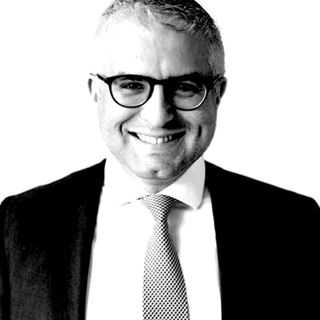
David Bashevkin: 5 Things SNL Taught Me About Life (Purim Special)
Subscribe to our email list here. In this Purim episode of the 18Forty Podcast, David Bashevkin talks about what Saturday Night Live has taught him about life, creativity, and running an organization. Prompted by the show’s 50th anniversary, we’re reflecting on lessons from five decades of laughter. In this episode we discuss: How did Lorne Michaels’s unique vision and insights help him “invent” SNL?What are the top five lessons about Jewish life that David has learned from the life of the SNL creator, born as Lorne David Lipowitz?What are David’s three favorite Jewish sketches from SNL?Tune in to hear a serious analysis of a comedic show. David Bashevkin is the founder of 18Forty. He is also the director of education for NCSY, the youth movement of the Orthodox Union, and the Clinical Assistant Professor of Jewish Values at the Sy Syms School of Business at Yeshiva University. He completed rabbinic ordination at Yeshiva University’s Rabbi Isaac Elchanan Theological Seminary, as well as a master’s degree at the Bernard Revel Graduate School of Jewish Studies focusing on the thought of Rabbi Zadok of Lublin under the guidance of Dr. Yaakov Elman. He completed his doctorate in Public Policy and Management at The New School’s Milano School of International Affairs, focusing on crisis management. He has published four books, Sin·a·gogue: Sin and Failure in Jewish Thought, a Hebrew work B’Rogez Rachem Tizkor (trans. In Anger, Remember Mercy), Top 5: Lists of Jewish Character and Character, and Just One: The NCSY Haggadah. David has been rejected from several prestigious fellowships and awards.References:Lorne: The Man Who Invented Saturday Night Live by Susan MorrisonLive From New York by Tom Shales and James Andrew MillerBossypants by Tina FeyToo Funny to Fail: The Life & Death of The Dana Carvey Show (2017)Comedians in Cars Getting Coffee: “Lorne Michaels: Everybody Likes to See the Monkeys”Tikkunei Zohar 57b“Weekend Update: Jacob the Bar Mitzvah Boy on the Story of Hanukkah”“Weekend Update: Adam Sandler on Hanukkah”Become a supporter of this podcast: https://www.spreaker.com/podcast/18forty-podcast--4344730/support.
11 Mar 43min
![Ken Brodkin: A Shul Becomes Orthodox [Outreach 5/5]](https://cdn.podme.com/podcast-images/442F75F179C4DCDBBECED1014024E388_small.jpg)
Ken Brodkin: A Shul Becomes Orthodox [Outreach 5/5]
In this episode of the 18Forty Podcast, we talk to Rabbi Ken Brodkin, rabbi of New Jersey’s Congregation B’nai Israel, about how he helped turn it into “the Orthodox synagogue for all Jews.” We also speak with Eli Kramer—a congregant instrumental in helping the shul affiliate as fully Orthodox—and Emily Appledorf, one of the newer members the shul set out to attract. In this episode we discuss:How can one persuade a century-old congregation with mixed seating to add a mechitza? Why would a young couple finding their way religiously join a newly Orthodox synagogue?What draws an Orthodox rabbi to a career serving the whole spectrum of Jews?Tune in to hear a conversation about the art of building a Jewish community. Interview with Eli Kramer: 14:23Interview with Emily Appledorf: 41:46Interview with Ken Brodkin: 1:05:37Rabbi Ken Brodkin is the rabbi of Congregation B’nai Israel in Manalapan, New Jersey. Rabbi Brodkin has dedicated his rabbinate to welcoming Jews of all backgrounds to the community and helping them along their Jewish journey. Rabbi Brodkin was hired by the Shul to help lead CBI’s transition to full Orthodox affiliation.Subscribe to our email list here. References:18Forty Podcast: “Lizzy Savetsky: Becoming a Jewish Influencer and Israel Advocate”Mishnah Berurah by Israel Meir Kagan“The Grandfather I Thought I Knew” by Mrs. Elana MoskowitzThe Tikvah Podcast: “David Bashevkin on Orthodox Jews and the American Religious Revival”Tanya by Shneur Zalman of LiadiEruvin 53bShemot Rabbah 2Aryeh Kaplan AnthologyTales Out of Shul by Emanuel FeldmanThe Book of Our Heritage by Eliyahu KitovWorks of the RamchalWorks of the MaharalBecome a supporter of this podcast: https://www.spreaker.com/podcast/18forty-podcast--4344730/support.
4 Mar 1h 54min
![Lizzy Savetsky: Becoming a Jewish Influencer and Israel Advocate [Outreach 4/5]](https://cdn.podme.com/podcast-images/7681179DA91281CC344D4DFD9C072A9B_small.jpg)
Lizzy Savetsky: Becoming a Jewish Influencer and Israel Advocate [Outreach 4/5]
In this episode of the 18Forty Podcast, we talk to Lizzy Savetsky, who went from a career in singing and fashion to being a Jewish activist and influencer, about her work advocating for Israel online. While, in past decades, Jewish thought leaders were mainly only rabbis and rebbetzins, the current information revolution is transforming our notions of what it means to be a Jewish public figure. In this episode we discuss:How did Lizzy’s life path take her from being a recipient of Jewish outreach to doing a form of outreach herself? How should we weigh the opportunities and dangers of social media?How did Lizzy decide to give up her previous career to speak out for Israel full-time?Tune in to hear a conversation about the democratization of mass influence and what that means for the Jewish People. Interview begins at 11:57.Lizzy Savetsky is a digital influencer who uses her platform to advocate for causes that are close to her heart. She shares her journey of fashionable motherhood on her social media channels, often featuring her two young daughters and baby boy. Lizzy is an outspoken activist for Israel and the Jewish People and works with numerous non-profit, philanthropic movements to support her people and homeland.Subscribe to our email list here. References:Origins of Judaism SeriesMishnah BerurahAll Who Go Do Not Return by Shulem DeenThe Drama of the Gifted Child by Alice MillerThe Rebbetzin by Rabbi Nachman SeltzerGenesis and the Big Bang by Gerald SchroederBecome a supporter of this podcast: https://www.spreaker.com/podcast/18forty-podcast--4344730/support.
25 Feb 1h 15min
![Ari Lamm: Teaching Non-Jews To Love the Bible [Outreach 3/5]](https://cdn.podme.com/podcast-images/831D9F30BFC50A05C5BCB0E2C99EF830_small.jpg)
Ari Lamm: Teaching Non-Jews To Love the Bible [Outreach 3/5]
In this episode of the 18Forty Podcast, we talk to Rabbi Dr. Ari Lamm, co-founder and president of SoulShop Studios, about doing Jewish “outreach” to non-Jews. Jewish texts are usually considered to be kept away from the outside world. But according to Rabbi Lamm, this is largely a misconception, as Jewish texts—from the Bible and the Talmud to the Midrash and beyond—have shaped the course of the human story. In this episode we discuss:Is “interfaith dialogue” generally ineffective?How did Christianity’s Protestant Reformation impact the Jewish People? In what way did chazal “ignite” the American Revolution?Tune in to hear a conversation about what the Jewish tradition has contributed—and still has to offer—to the broader culture. Interview begins at 7:58.Rabbi Dr. Ari Lamm is Co-Founder and President of SoulShop Studios, a new media venture for faith-driven Gen Z audiences, and Chief Executive of the Bnai Zion Foundation. Rabbi Dr. Lamm is a leading Jewish public intellectual using digital media to bring great Jewish ideas to the wider English-speaking public. He is the host of the top-ranked weekly podcast on the Bible and society, Good Faith Effort. And his popular Twitter threads on “Why Read the Bible in Hebrew?” have garnered over 4 million views to date, and been covered by major international news outlets. He joins us to talk about teaching the bible to non-Jews. References:Isaiah 56:7Isaiah 2Genesis 12Devarim Rabbah 5:8A Defence of the People of England by John MiltonCommon Sense by Thomas Paine“Why Read The Bible In Hebrew?”“Rabbi Lord Jonathan Sacks Interviewed by Rabbi Ari Lamm”The Hebrew Republic by Eric NelsonAri Lamm on “Four score and seven years ago”Psalm 90 King James VersionBecome a supporter of this podcast: https://www.spreaker.com/podcast/18forty-podcast--4344730/support.
18 Feb 1h 6min
